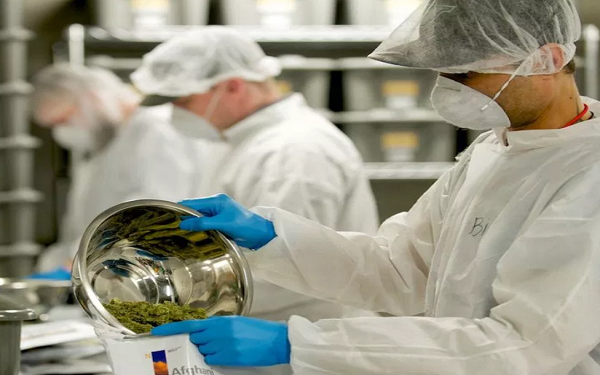
Tilray Inc. is prepared to quickly move into the U.S. cannabis market if a pro-hemp farm bill is passed.
Tilray’s $500 million in cash, its Nasdaq-listing and its global reach “gives us advantages to very quickly deploy capital in the U.S.” if Congress passes the farm bill, which would legalize non-intoxicating cannabidiol derived from hemp, Brendan Kennedy said Tuesday on the company’s third-quarter earnings call. He is also closely watching the STATES Act, which would give states the power to legalize marijuana without the threat of federal interference.
Tilray would have an advantage over U.S.-based cannabis companies that are forced under current regulations to have operations for individual states, he said.
“Companies such as ours would deploy massive amounts of capital in one single location or two single locations in one or two states and quickly move that product from state to state,” Kennedy said.
Tilray, which has a market value of $10.4 billion, reported revenue of $10 million in the quarter ended Sept. 30, an increase of 86 per cent from a year ago. Its net loss was $18.7 million, or 20 cents a share, compared with $1.8 million a year ago. Results included stock-based compensation charges and higher operating expenses. The quarter did not include the impact of Canada’s legalization of recreational marijuana, which took effect on Oct. 17.
Tilray shares fell 2.3 per cent in extended trading in New York. The stock has surged more than 500 per cent since its initial public offering in July.
Tilray sold 1,613 kilogram equivalents of cannabis in the quarter, more than double the prior year’s sales of 684 kilograms. Its average net selling price per gram was $7.98, down from $7.53 a year ago. This was due to an increase in bulk sales as a percentage of total revenue, the Nanaimo, B.C.-based company said Tuesday.
Third-quarter gross margin fell to 31 per cent from 55 per cent, but Chief Financial Officer Mark Castaneda said he expects a longer-term gross margin above 50 per cent as new, lower-cost production facilities ramp up.
Earlier, Cronos Group Inc. said its average selling price in the third quarter fell to $7.32 from $8.01 the prior year. Aurora Cannabis Inc.’s average net selling price was $9.19 in the same period.
Tilray, like many of its peers, has been struggling to meet demand in the wake of Canadian pot legalization, which took effect Oct. 17. The company has been meeting with cultivators to see if it can source additional marijuana, but has been surprised by the lack of quantity and quality, Kennedy said.
“Over the last year we kept hearing about all this capacity that people were building out and when we went to buy some of that supply, it’s just not available, people tended to exaggerate their capacity,” he said. “The second thing we’re seeing is there’s far less quality supply than expected.”
Source: financialpost.com